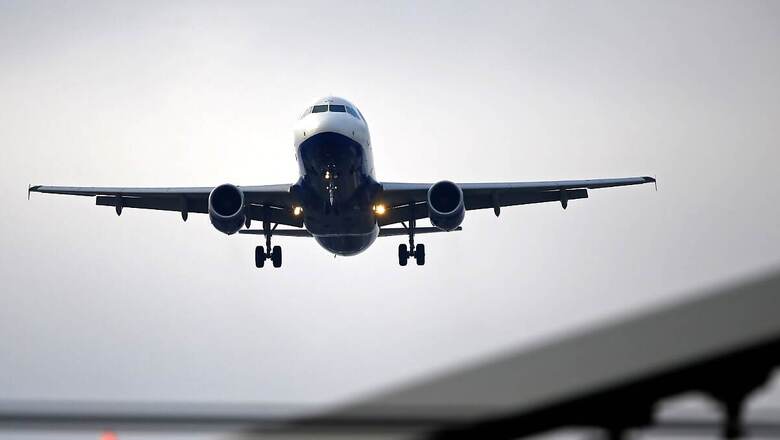
views
The overall average airfares on ten domestic routes, including Delhi-Srinagar, are on the decline, and the trend is likely to continue in the coming weeks also, according to an analysis based on data compiled by aviation regulator DGCA.
In recent weeks, there has been a surge in airfares on certain routes, mainly due to a capacity crunch and suspension of operations by crisis-hit Go First.
Against this backdrop, concerns have been expressed in various quarters, and the civil aviation ministry on June 6 asked airlines to devise a mechanism to ensure reasonable pricing of air tickets.
Also Read: ‘No Plan To Regulate Airfares’, Airlines Asked To Exercise Moderation In Ticket Pricing
An analysis of airfares based on a select week-on-week comparison for a period till July 13 showed that the average ticket prices are on the decline.
The data has been compiled by the tariff monitoring unit of the Directorate General of Civil Aviation (DGCA).
The ten routes are Delhi-Srinagar, Srinagar-Delhi, Delhi-Leh, Leh-Delhi, Mumbai-Delhi, Delhi-Mumbai, Delhi-Pune, Pune-Delhi, Ahmedabad-Delhi and Delhi-Ahmedabad.
Sources at the ministry said the overall average airfares are on the decline in these routes, except that on the Mumbai-Delhi route.
The surge in airfares has been mainly witnessed on routes that were operated by Go First, which has not flown since May 3.
On June 5, during a meeting chaired by Civil Aviation Minister Jyotiraditya Scindia, airline representatives were asked to self-regulate fares, and also put in place a mechanism to ensure reasonable pricing of air tickets.
Airfares are deregulated in India.
A ministry official on Tuesday said there are no plans for regulating the fares and that introducing fare caps on various routes will lead to market distortion.
In a series of tweets on Monday, Scindia said fares have been reduced by up to 60 per cent and are likely to decline further on certain routes that had seen an increase in fares.
He also said DGCA is closely monitoring the situation.
“This is no ordinary situation for civil aviation. After two years of ZERO flights taking off due to COVID-19, the sector, GLOBALLY is now faced with tough supply chain challenges (also the primary reason for grounding of Go First fleet).
“And so, airlines are unable to induct aircraft immediately. However, we had foreseen the issue long back, and had pro-actively liberalised the wet lease policy,” Scindia had said on Monday.
Wet lease policy refers to the leasing of aircraft by airlines wherein crew, among others, are provided by the lessors concerned. It is usually done as a short-term measure to address capacity constraints.

















Comments
0 comment